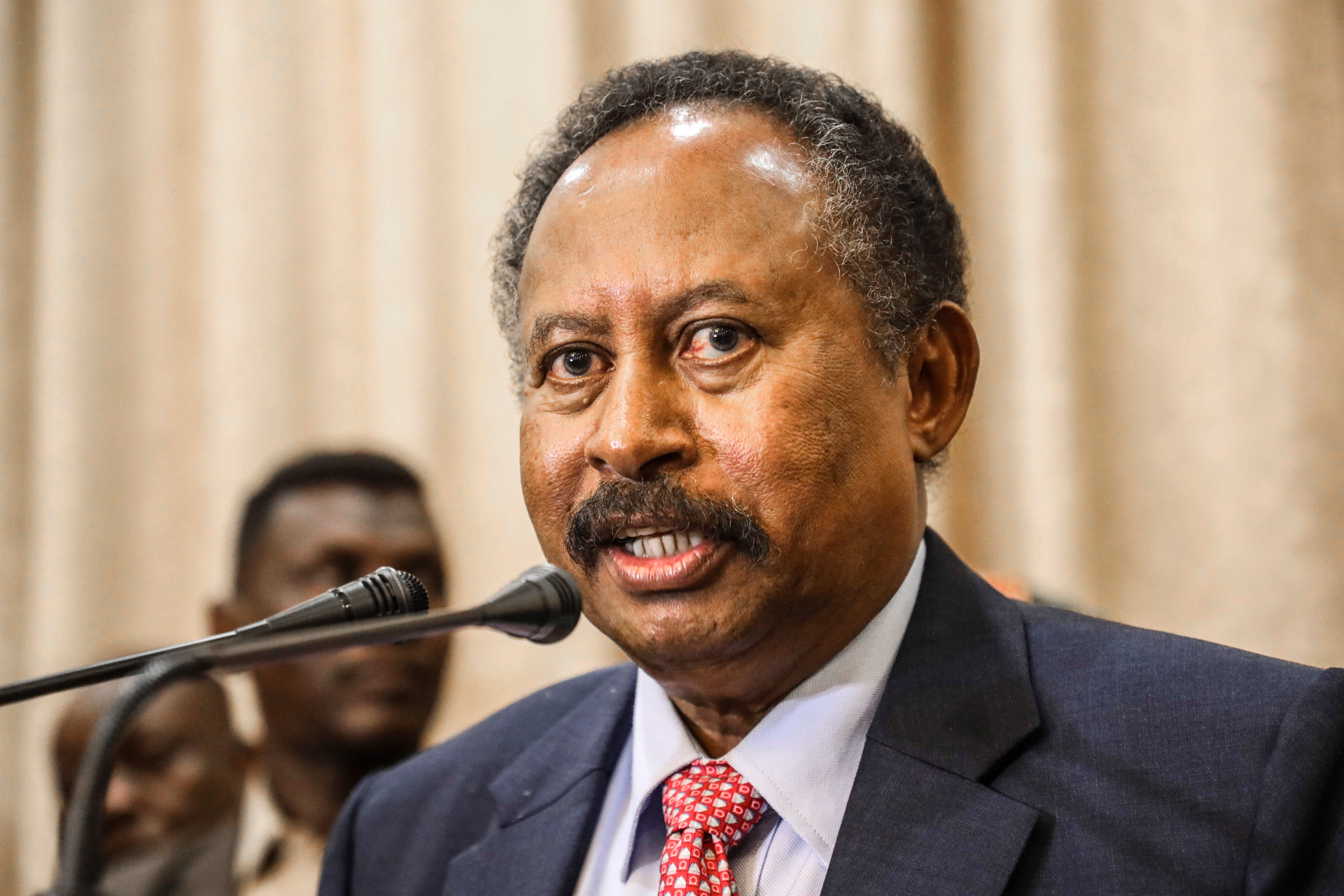Sudan’s PM meets Ethiopian leader after cross-border attack
Sudan’s prime minister has met with his Ethiopian counterpart

Your support helps us to tell the story
From reproductive rights to climate change to Big Tech, The Independent is on the ground when the story is developing. Whether it's investigating the financials of Elon Musk's pro-Trump PAC or producing our latest documentary, 'The A Word', which shines a light on the American women fighting for reproductive rights, we know how important it is to parse out the facts from the messaging.
At such a critical moment in US history, we need reporters on the ground. Your donation allows us to keep sending journalists to speak to both sides of the story.
The Independent is trusted by Americans across the entire political spectrum. And unlike many other quality news outlets, we choose not to lock Americans out of our reporting and analysis with paywalls. We believe quality journalism should be available to everyone, paid for by those who can afford it.
Your support makes all the difference.Sudan’s prime minister met his Ethiopian counterpart Sunday, as Sudanese forces continued their advances to reclaim territories controlled by Ethiopian militias along the two countries shared border
Abdalla Hamdok’s office said the meeting with Abiy Ahmed took place in the Horn of Africa nation of Djibouti, on the sidelines of a summit of a regional bloc. His office said Sudanese and Ethiopian officials would convene Tuesday in Sudan's capital for border talks. It did not give further details.
The two leaders' meeting came just days after a cross-border attack by Ethiopian forces and militias that killed at least four Sudanese troops and wounded a dozen others in the Abu Tyour area in eastern Sudan's al-Qadarif province.
Sudan's state-run news agency reported Saturday that the military had deployed “large reinforcements” into al-Qadarif province to reclaim territories controlled by Ethiopian farmers and militias in Sudan's al-Fashqa border area. The troops would stop at the border line according to the 1902 deals between Sudan and Ethiopia, SUNA reported.
Tuesday's cross-border attack in Abu Tyour came amid weekslong fighting in Ethiopia’s northern Tigray region that has pitted the federal government against regional authorities. The Tigray fighting has sent over 52,000 Ethiopian refugees into Sudan, mostly into al-Qadarif province.
At the start of the clashes in Tigray, Sudan deployed more than 6,000 troops to its border with Ethiopia.
The attack in al-Qadarif was the latest by Ethiopian forces and militias on Sudanese troops and people over the past several months, and has strained ties between the two neighbors. The sides have held talks in recent months to encourage Ethiopian farmers to withdraw from Sudan’s al-Fashqa border area, which they have cultivated for years.
Following the attack, the head of Sudan's ruling sovereign council, Gen. Abdel-Fattah Burhan, travelled to al-Qadarif and spent three days there overseeing the deployment of heavily armed troops to the border area, according a senior military official. The official spoke on condition of anonymity because he was not authorized to brief the media.
Ethiopia's prime minister on Thursday downplayed the attack, saying that “such incidents will not break the bond” between the two countries.
“We always use dialogue to resolve issues. Those fanning discord clearly do not understand the strength of our historical ties,” Ahmed tweeted.
Ahmed and Hamdok met at a summit of the Intergovernmental Authority on Development, known as IGAD, where the Tigray fighting would likely top the agenda. Hamdok is the current head of IGAD.